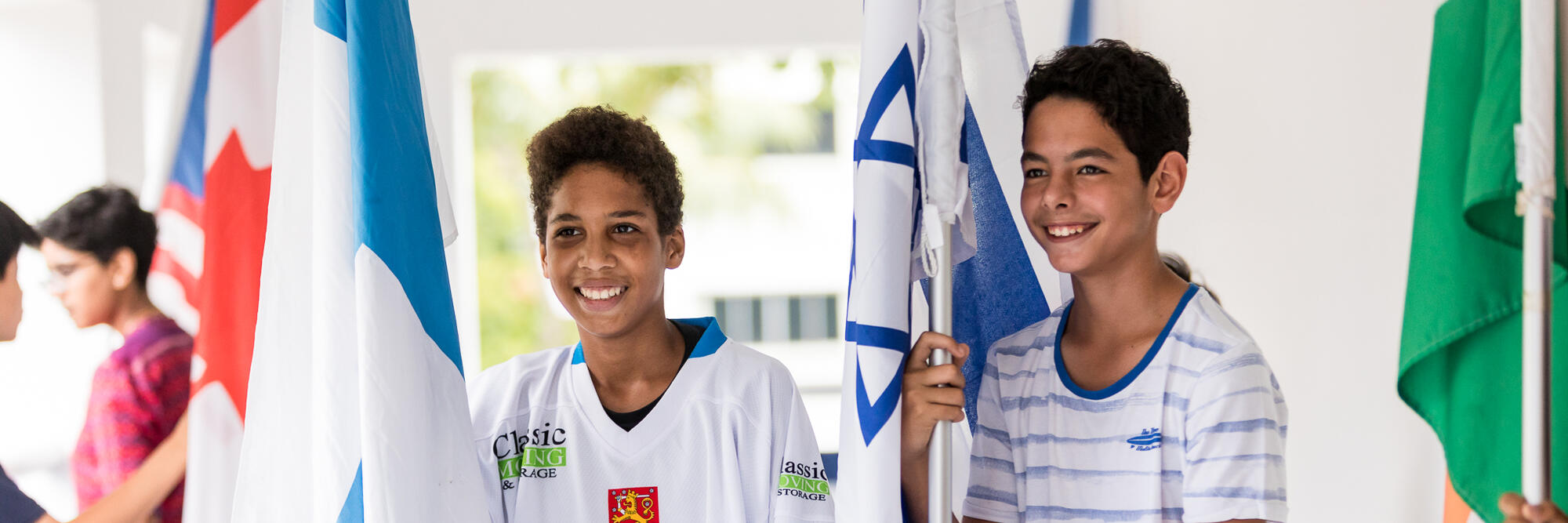When moving to a new country, children need time to adjust to a new culture and often a new language too. While adapting to new surroundings is important, most parents will naturally want to maintain some traditions of their home country. This is one way of teaching children to understand and appreciate their cultural origins.
Here are some ideas to help third-culture children observe home-culture traditions, and how an international school like One World International School celebrates multiculturalism while encouraging children to discover their own cultural identity.
Decide what's important to your family
Think about the values and traditions that are most important to your family and decide how you'll keep them alive. This may look a little different for everyone, but what matters is creating meaningful cultural experiences for your children.
Find creative ways to celebrate
Attempting to continue your home country's traditions in a new country may require a little creativity. Celebrating an American Thanksgiving – complete with turkey and cranberry sauce, for instance – may take on some local flavour if you are living in a country where those foods are harder to come by. You may have to incorporate local fare into your holiday menu, but you can still make decorations and maintain the spirit of core traditions.
Celebrate with like-minded people
Look for a club or other groups in your community that share similar traditions and organise festivities with them. Navigating the transition to a new culture is easier when you can find at least a few others who share traditions that parallel your own.
Enjoy the local culture
Living in a new country provides virtually limitless opportunities to learn about a new culture. Attend local festivities and celebrations with your family. As you become more involved in the community, you will find that you probably have more in common culturally than you realise.
Connecting with the community will encourage your children to find common ground with their peers and feel a sense of belonging in their new home. Additionally, being open minded about the new country and culture sets a healthy example for your children to emulate.
Challenges of being a third-culture child
Although they're curious and quick to embrace differences, third-culture children sometimes feel they don't belong, as they may not fully identify with the culture of their country of origin or that of their new home.
Additionally, experts report that these children frequently do not talk about what they are going through. It's important to strike up regular conversations with your children, and to hear them out, to help them process the changes happening in their lives.
Establishing a warm, nurturing atmosphere at home can alleviate some of the difficulties children experience when adjusting to a new culture.
Advantages of being a third-culture child
On the plus side, third-culture children have unique perspectives about the world and often speak more than one language. They are also more adaptable than others in the face of change, have excellent communication and diplomacy skills and tend to readily accept people from different cultures and backgrounds.
Celebrating multiculturalism at One World International School
At One World International School, which has students from over 70 nationalities, a multicultural environment is cultivated where each child is accepted and valued. The school encourages children to be open-minded toward the local culture and the many different cultures represented in its diverse student body. At the same time, One World International School thoughtfully guides students in developing a deeper appreciation and understanding of their own cultural identity.
To learn more about how OWIS fosters students to grow into responsible internationally minded citizens, please visit their website at www.owis.org and get in touch.



